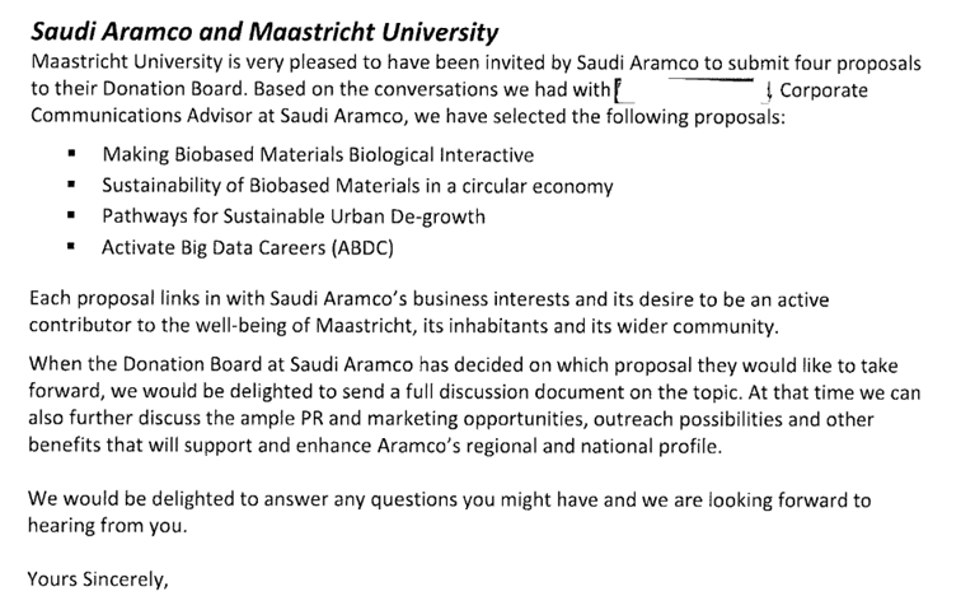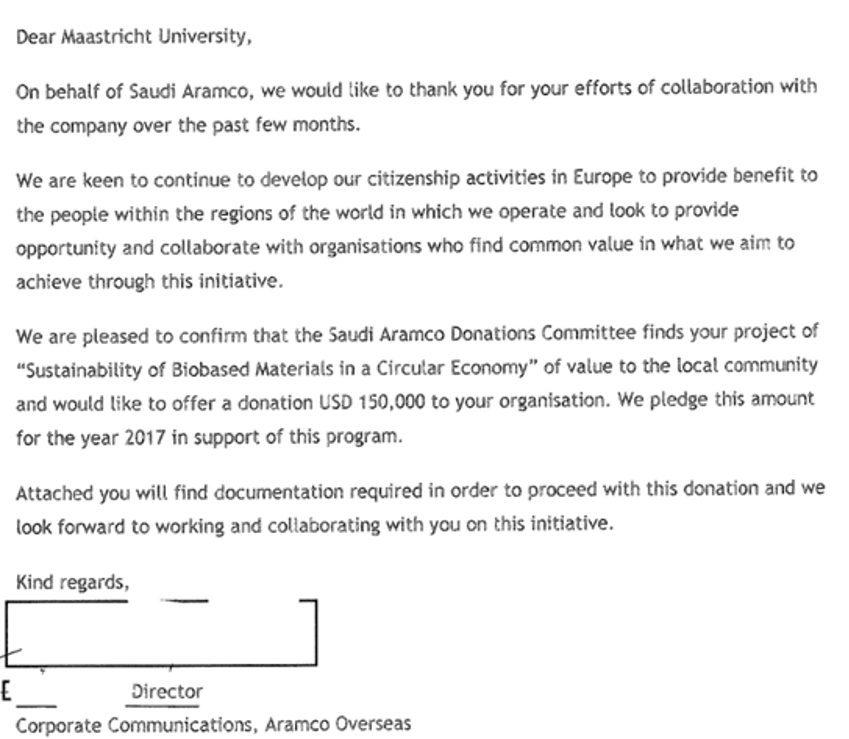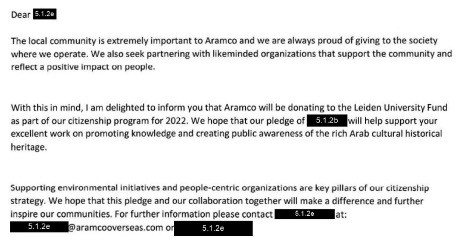In a freedom of information request to Maastricht University, we received an exchange of letters between the university and aramco. We wrote about it here in ScienceGuide.
A representative of the university offers Aramco the choice of 4 proposals to fund (of which 3 were proposals for externally funded professorships). One of them was about urban de-growth (specifically relevant to the local former coal mining area of Limburg), another on careers in big data, and two on bio-based materials.
“Each proposal links in with Saudi Aramco’s business interests”, write the university’s representatives. Later, they can “further discuss the ample PR and marketing opportunities, outreach possibilities and other benefits that will support and enhance Aramco’s regional and national profile.”

Aramco chooses to fund a proposal in bio-based materials. As far as we can find online, the other proposals did not come to fruition. In their acceptance letters Aramco writes that their chosen proposal is “of value to the local community” and in follow-up letters over the next 2 years, during which a total of $400,000 is donated, they stress: “we are proud to collaborate with local partners for the benefit of the communities in the areas in which we operate”.
Why the concern about the local community? Why not fund the urban degrowth proposal, which is directly relevant to the local community?
Firstly, we have seen from our research so far that obtaining or maintaining a Social Licence to Operate appears to be a key motivator for fossil fuel companies to work with universities. In proposal from 2014 by Leiden University to Aramco, the university lists under the “added value” for Aramco that a partnership is an “ideal opportunity to be connected to the history, tradition and reputation” of the university. In a letter to the Leiden University Funds Aramco writes: “The local community is extremely important to Aramco… Supporting environmental initiatives and people-centric organizations are key pillars of our citizenship strategy”.
Secondly, companies will tend to fund research that aligns with their business interests. That appears to be bio-based materials (for example, Aramco is 70% owner of SABIC, which makes bioplastics) and not de-growth. It is worth mentioning, however, that Aramco’s activities are overwhelmingly in oil and gas rather than bio-based materials, and they plan to stay that way. They are the largest oil and gas producer in the world, are still expanding production and even the UN has warned investors that financing Aramco may be in violation of international human rights law, because of their destructive business plans. When they write to Maastricht University that they “contributed to … protecting and preserving the natural environment and ecosystem across the globe”, one can be sure that funding of green-sounding topics like “Sustainability of Biobased Materials in a Circular Economy” is simply greenwashing for Aramco.
Allowing such a company to determine research direction is not ideal. We don’t wish to single out Maastricht University, or Leiden University for that matter. This type of influence over research direction and sale of reputation may happen more often, but if it is at a conference or over a business lunch, there’s no written evidence left behind.
Furthermore, Maastricht University was the fastest to deliver documents for the FOI request (7 1/2 months), after Leiden University (6 months). Maastricht also did not unnecessarily redact funding amounts. Other universities (Eindhoven University of Technology, University of Twente, Delft University of Technology) have given us indexes of collaborations which we were allowed to distribute either publicly or within the Mapping Fossil Ties coalition, but we still await documents. From other universities (University of Groningen, University of Amsterdam) we have received nothing publishable, though we expect the first documents from UvA today. From Radboud University and Tilburg University we have also not received documents, though these universities do not fall under the “Wet Open Overheid”.

